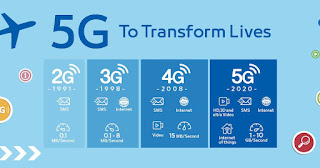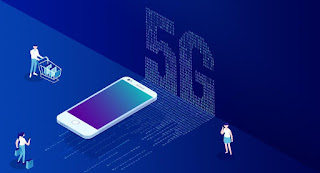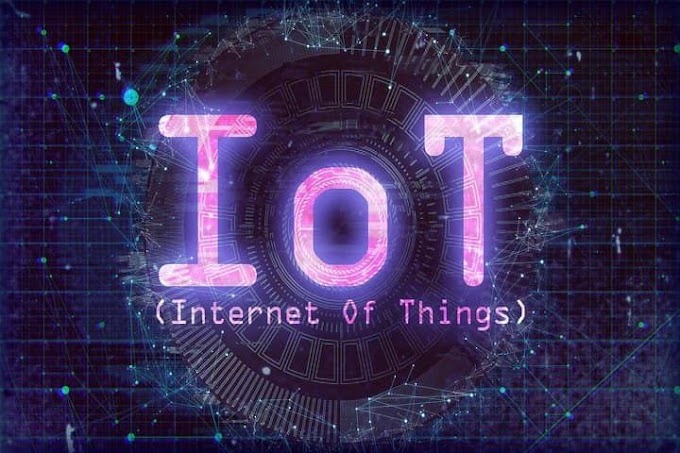5G Mobile Wireless Technology
5G is the 5th generation mobile network. It will take a much larger role than previous generations ie 2G, 3G and 4G
🎞🎞VIDEO🎞🎞
🎞🎞VIDEO🎞🎞
5G has been designed to meet the very large growth in data and connectivity of today’s modern society, the internet of things with billions of connected devices, and tomorrow’s innovations. 5G will initially operate in conjunction with existing 4G networks before evolving to fully standalone networks in subsequent releases and coverage expansions
WHEN DID 5G LAUNCH?
Initial 5G services commenced in many countries in 2019 and widespread availability of 5G is expected by 2025.
How does 5G work?
Like 4G LTE, 5G is also OFDM-based and will operate based on the same mobile networking principles. However, the new 5G NR (New Radio) air interface will further enhance OFDM to deliver a much higher degree of flexibility and scalability. For more details on 5G waveform and multiple access techniques, please refer to this this 5G waveform whitepaper.
5G will not only deliver faster, better mobile broadband services compared to 4G LTE, but it will also expand into new service areas, such as mission-critical communications and connecting the massive IoT. This is enabled by many new 5G NR air interface design techniques, such as a new self-contained TDD subframe design; for more detailed information on 5G and to understand the specific 5G NR design components
WHAT WILL 5G ENABLE?
- Enhanced Mobile Broadband: 5G will not only make our smartphones better, but it will also usher in new immersive experiences, such as VR and AR, with faster, more uniform data rates, lower latency, and cost-per-bit.
- Mission-Critical communications: 5G will enable new services that can transform industries with ultra-reliable/available, low latency links—such as remote control of critical infrastructure, vehicles, and medical procedures.
- Massive Internet of Things: 5G will seamlessly connect a massive number of embedded sensors in virtually everything through the ability to scale down in data rates, power and mobility to provide extremely lean/low-cost solutions.
- A defining capability of 5G is also the design for forward compatibility—the ability to flexibly support future services that are unknown today.
- Massive machine to machine communications – also called the Internet of Things (IoT) that involves connecting billions of devices without human intervention at a scale not seen before. This has the potential to revolutionise modern industrial processes and applications including agriculture, manufacturing and business communications.
- Ultra-reliable low latency communications – mission critical including real-time control of devices, industrial robotics, vehicle to vehicle communications and safety systems, autonomous driving and safer transport networks. Low latency communications also opens up a new world where remote medical care, procedures, and treatment are all possible
- 5G is a unified platform that is more capable than 4G.
- 5G uses spectrum better than 4G.
- 5G is faster than 4G.
- 5G has more capacity than 4G.
- 5G has lower latency than 4G.
Advantage's
- High resolution and bi-directional large bandwidth shaping.
- Technology to gather all networks on one platform.
- More effective and efficient.
- Technology to facilitate subscriber supervision tools for the quick action.
- Most likely, will provide a huge broadcasting data (in Gigabit), which will support more than 60,000 connections.
- Easily manageable with the previous generations.
- Technological sound to support heterogeneous services (including private network).
- Possible to provide uniform, uninterrupted, and consistent connectivity across the world.
- Parallel multiple services, such as you can know weather and location while talking with other person.
- You can control your PCs by handsets.
- Education will become easier − A student sitting in any part of world can attend the class.
- Medical Treatment will become easier & frugal − A doctor can treat the patient located in remote part of the world.
- Monitoring will be easier − A governmental organization and investigating offers can monitor any part of the world. Possible to reduce the crime rate.
- Visualizing universe, galaxies, and planets will be possible.
- Possible to locate and search the missing person.
- Possible, natural disaster including tsunami, earthquake etc. can be detected faster.
Disadvantage's
- Technology is still under process and research on its viability is going on.
- The speed, this technology is claiming seems difficult to achieve (in future, it might be) because of the incompetent technological support in most parts of the world.
- Many of the old devices would not be competent to 5G, hence, all of them need to be replaced with new one — expensive deal.
- Developing infrastructure needs high cost.
- Security and privacy issue yet to be solved.
CHECK OUT VID ON 5G HERE













